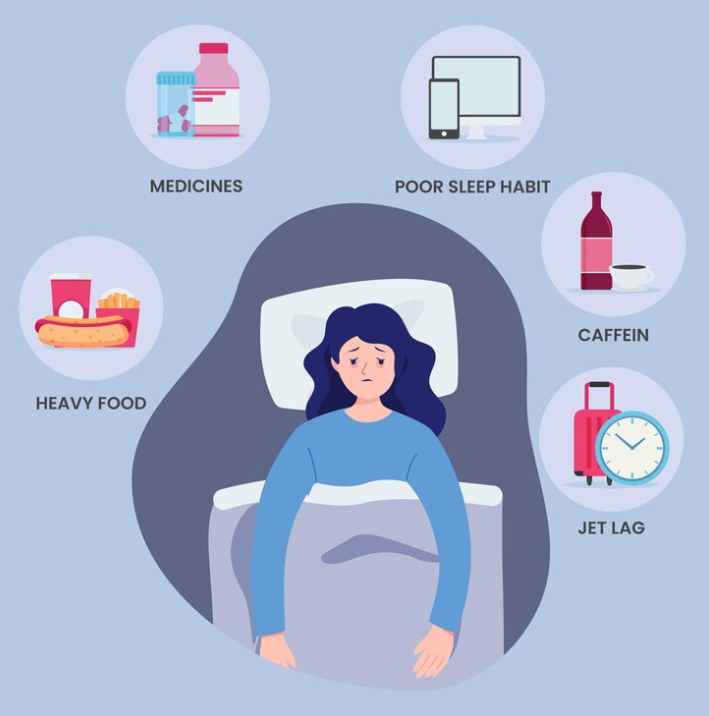
The Role of Hormones in Types of Insomnia: Acute vs. Chronic
Introduction: Insomnia, the difficulty in falling asleep or staying asleep, can be classified into different types based on its duration and severity. Hormones play a crucial role in regulating sleep patterns, influencing the onset and persistence of insomnia. Let’s delve into the types of insomnia, namely acute and chronic, in simple terms.
Understanding Types of Insomnia:
Acute Insomnia: Acute insomnia is short-term and often occurs in response to stressful events, changes in routine, or environmental factors. It typically lasts for a few nights or weeks and resolves on its own once the triggering factors subside. Hormonal responses to stress, such as increased cortisol levels, can disrupt sleep patterns and contribute to acute insomnia.
Chronic Insomnia: Chronic insomnia, on the other hand, is long-term and persists for at least three nights a week for three months or more. It can have various underlying causes, including medical conditions, mental health disorders, or persistent stress. Hormonal imbalances, such as disruptions in the sleep-wake cycle regulated by melatonin, may contribute to the development and perpetuation of chronic insomnia.
Symptoms of Insomnia: Regardless of the type, insomnia can present with similar symptoms, including difficulty falling asleep, frequent awakenings during the night, waking up too early, daytime fatigue, irritability, and impaired concentration. Hormonal fluctuations, particularly in cortisol and melatonin levels, can exacerbate these symptoms and disrupt the sleep-wake cycle further.
Managing Insomnia: Managing insomnia involves addressing underlying causes, adopting healthy sleep habits, and seeking appropriate treatment. Strategies may include stress management techniques, creating a relaxing bedtime routine, avoiding stimulants like caffeine and electronics before bed, and seeking professional help if needed. Hormonal regulation through lifestyle modifications, such as regular exercise and maintaining a consistent sleep schedule, can also support better sleep quality.
Conclusion: Understanding the types of insomnia, acute and chronic, and their hormonal influences is essential for effective management. By addressing hormonal imbalances, adopting healthy sleep habits, and seeking appropriate treatment, individuals can improve their sleep quality and overall well-being.
To seek medical advice, always consult a Doctor. Here are our recommended experts. Click Here
To read more on Insomnia. Click Here


